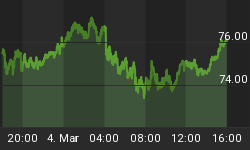September payrolls fell by 159K, worst decline since May 2007, while the unemployment rate held at 6.1%. Although unchanged, the unemployment rate is widely expected to breach above the 6.3% rate in coming months, which would be the highest jobless rate since 1994. Our long held base call of 50-bps easing before year-end is now completely priced in the market, with about 55% chance of the cut emerging before the October 29 meeting.
Retail Jobs Extend Losses Beyond 2001 Recession
Taking a closer look at sectors, retail jobs show their 10th monthly consecutive loss, exceeding the 8-month loss during the 2001 recession, which is resounding reflection of the corrosion to US consumers. As the wealth effect to the US economic engine (consumers) stalls further via the negative transmission from negative home equity, falling stocks and disrupted debt market, the blow to the US economy will be far greater than that of the 2001 recession, when the wealth effect was solely disrupted by stocks and not housing. The fed funds graph in the charts below shows the Fed's pause will be only temporary, just as was the 10-month pause in 2002 (circled period).

The September jobs report confirms the economic deterioration already signaled in recent reports, including the 6-year low in manufacturing ISM and the 4.0% plunge in factory orders. As in previous reports, today's employment figures avoid the catastrophic payrolls readings seen in 2001, when the 3-month moving average was upward (worst) of -250K. Payrolls' 3-month moving average falls to -111K from -80K. The pace of declines in payrolls has been markedly less than in the 1990 and 2001-2 recessions, but the rate of increase in the unemployment rate remains at the same pace with past recessions. The possibility of a 14-year high in jobless rate in next month's report, is expected to force the Fed's hand, especially that price pressures are beginning to be dragged by eroding pricing power.
Jobs Won't be Shadowed by Govt Intervention This time
As in the August jobs report, which was shadowed by the Treasury's announcement of the takeover of Fannie Mae and Freddie Mac, today's September jobs report may slip under the attention and optimism surrounding the House vote on the TARP bill. The role of market impact from these announcements has led to short-lived buying opportunities in equities and risk appetite, yet, not long enough for the fundamentals to re-assert themselves and trigger renewed selling in equities.
Dollar loses initial gains and drops against the high yielders mainly due to a rebound in risk appetite and the resulting rally in US stocks in anticipation of the TARB bill approval. The bulk of USD losses occurred in the run-up to the jobs report, before a recovery following the no change in unemployment rate. USDJPY to face resistance at 106.50, while the GBPUSD rebound is seen capped at $1.7850, a rally that is predominantly based on improved risk appetite. We expect renewed losses in cable back towards $1.7650 and onto $1.7580s as markets anticipate next week's rate cut from the Bank of England. EURUSD capped at $1.3860, but losses seen resurfacing back towards $1.3740 and onto 1.3680s. USDCAD support stands at 1.0750s, for a prolonged rebound towards 1.0820s.















